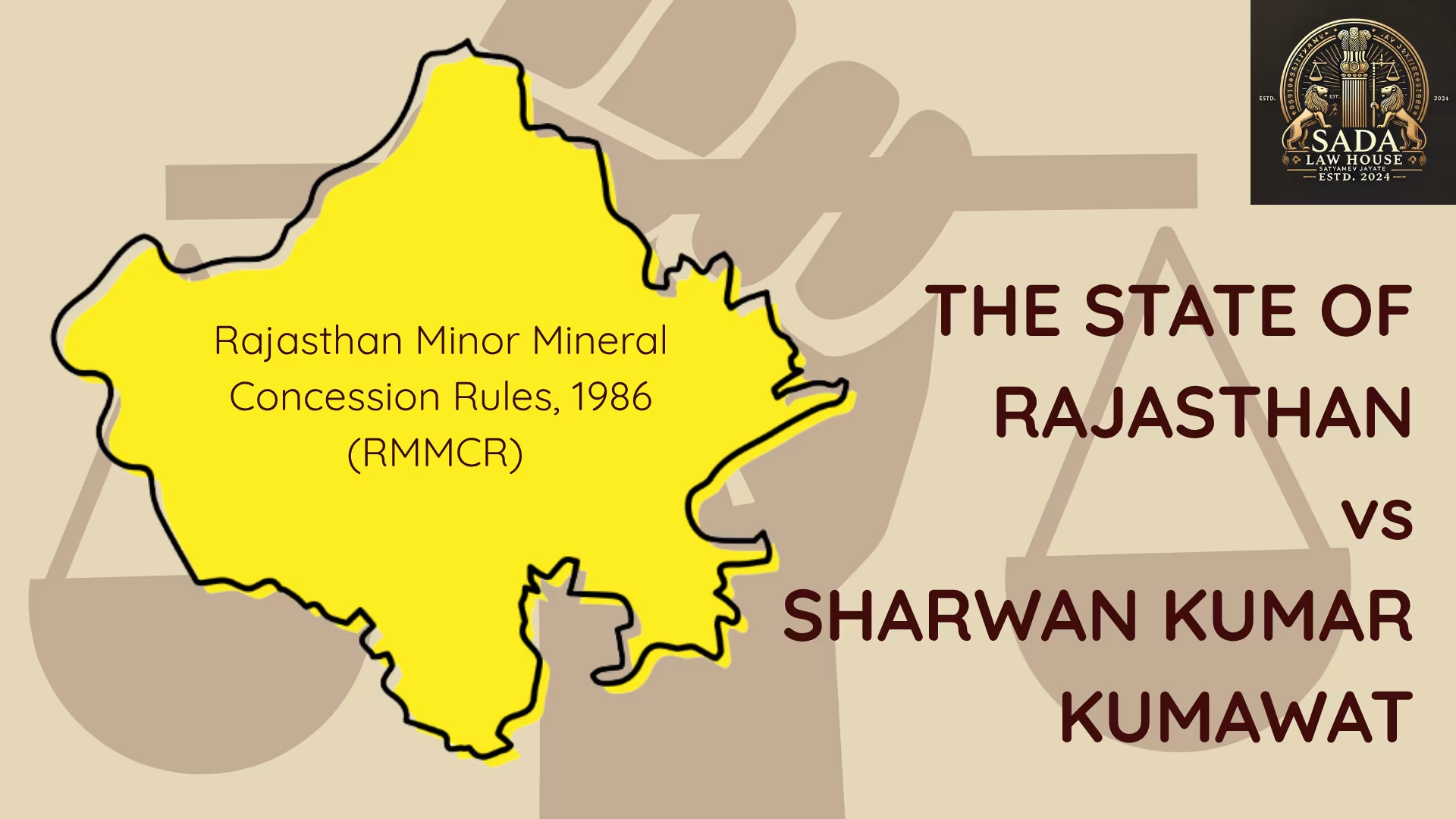State of Rajasthan v. Sharwan Kumar Kumawat (2023): Validity of Amendments to Rajasthan Minor Mineral Concession Rules
- PRABHAT KUMAR BILTORIA
- 13 October, 2025

Introduction
This case examines the legality and constitutionality of amendments to the Rajasthan Minor Mineral Concession Rules, 1986, which replaced the “first come, first served” approach for mining leases with a delineation and auction-based system. The Supreme Court of India reviewed petitions after the Rajasthan High Court declared the amendments invalid.
Facts of the Case
Amendments notified on January 28, 2011, and April 3, 2013, introduced Rules 4(10) and 7(3), mandating delineation and auction of government land for mining leases.
Applications received prior to January 27, 2011, were generally rejected unless special circumstances applied.
Petitioners like Sharwan Kumar Kumawat contested the changes, citing breach of reasonable expectations, lack of hearing, and infringement of vested rights.
Rajasthan High Court initially held the amendments invalid.
Issues of the Case
Are the amendments to Rules 4(10) and 7(3) of the Rajasthan Minor Mineral Concession Rules, 1986 constitutionally valid?
Do applicants for mining leases acquire any fundamental or vested rights?
Do the amendments violate principles of natural justice or legitimate expectation?
Were the amendments intended to evade previous High Court orders?
Judgment
The Supreme Court upheld the constitutionality of the amendments. Key observations include:
1. No Fundamental or Vested Right in Mining
Submitting an application does not create a vested right.
Mining leases are not a fundamental right.
Rights to government land and mineral resources are strictly regulated by statute.
2. Legitimacy of Amendments
The State can amend rules to ensure equitable, transparent, and open practices, including online auctions.
Amendments aim for better mineral regulation and fair distribution.
3. Natural Justice and Legitimate Expectation
Public interest supersedes legitimate expectation.
Beneficial amendments cannot be contested merely because they contradict preconceived notions.
Applicants have no inherent right to a hearing before policy changes.
4. No Legal Malice
Amendments reflect statutory policy changes, not attempts to override court orders.
High Court rulings were limited in scope and did not grant overarching rights to applicants.
5. Dependency on Prior Cases
State of Tamil Nadu v. Hind Stone (1981): No vested right from pending applications.
Monnet Ispat & Energy Ltd. v. UOI (2012): No fundamental right to a mining lease.
Kerala Beverages Corp. v. P.P. Suresh (2019): Reasonable expectations are limited in public interest matters.
Conclusion
The Supreme Court affirmed the State of Rajasthan’s authority and the legality of the amended rules:
Pending applications do not create enforceable rights.
Public interest and State authority override legitimate expectations.
Transition to delineation and auction system is lawful and consistent with legislative and constitutional standards.
This ruling reinforces the principle that natural resources are State-owned and their allocation must be transparent, equitable, and in the public interest.
Case Laws






